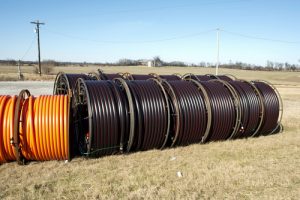
The federal government would be directed to study the economic impact of broadband internet under bipartisan legislation introduced by U.S. Sen. Shelley Moore Capito (R-WV) on Wednesday.
The Measuring the Economic Impact of Broadband Act would direct the Bureau of Economic Analysis to generate data on how broadband deployment and adoption of broadband impacts the U.S. economy.
Capito and U.S. Sen. Amy Klobuchar (D-MN), the co-chairs of the Senate Broadband Caucus, introduced the bill to generate timely, accurate data across a variety of categories. The analysis would focus on job creation, business headcount, online commerce, income, education and distance learning, telehealth, telework, agriculture, population growth, population density, broadband speed and geography.
“Broadband connectivity has the power to unleash jobs and fuel economic growth throughout the country, especially in rural areas like West Virginia,” Capito said. “This legislation will provide the data needed to measure the benefits of broadband accessibility and the importance of investing in critical broadband infrastructure.”
Improving broadband accessibility in West Virginia has been a priority for Capito. As many as 74 percent of West Virginia residents lack proper access to broadband services that meet Federal Communications Commission benchmarks.
The new legislation would authorize the Bureau of Economic Analysis to consult rural and urban internet service and telecommunications infrastructure providers, as well as state and local agencies and consumer organizations.
“Broadband is a great equalizing force for creating jobs, leveling the playing field, and increasing opportunity,” Klobuchar said. “Our bipartisan legislation will help provide us with the reliable, publicly available economic data we need to make informed decisions about expanding broadband, connecting our communities, and keeping us competitive in an increasingly digital world.”



